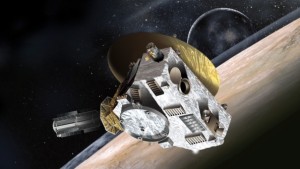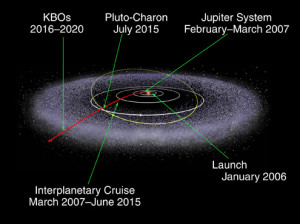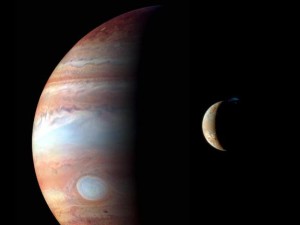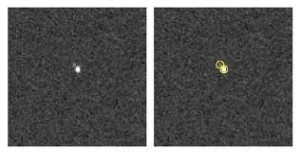Peter Lobner
The New Horizons spacecraft is scheduled for a flyby of Pluto and its five known moons on July 14, 2015. Launched in January 2006, New Horizons has gone through 18 “hibernation” cycles enroute to Pluto. It came out of its last hibernation cycle on December 6, 2014. New Horizons electrical systems are powered by a radioisotope thermoelectric generator (RTG) that produces electricity from the heat of decaying Plutonium 238. Propulsion is by means of hydrazine thrusters.
 New Horizons spacecraft. Source: NASA
New Horizons spacecraft. Source: NASA Source: NASA
Source: NASA Source: NASA
Source: NASAYou can see an interesting NASA time-lapse “video” sequence of Charon circling Pluto at the following link:
http://www.nbcnews.com/science/space/watch-pluto-dance-its-moon-new-horizons-video-n175456
As noted in that article, Charon’s mass is roughly a tenth of Pluto’s, which gives it enough gravitational pull to have a noticeable effect on Pluto’s position.
You can follow details on the New Horizons mission on the following NASA website:
http://www.nasa.gov/mission_pages/newhorizons/main/#.VQR9wykUyOJ
After the Pluto encounter, New Horizons will continue on to visit one or more objects in the Kuiper Belt, which circles our solar system beyond the orbit of Pluto. The Hubble space telescope has been used to search for potential Kuiper Belt Objects (KBOs).
